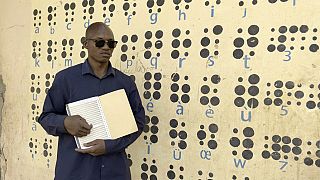Mali
Both School and COVID-19 Bells are Ringing on Campus
Students went back to school on Monday in Mali after the government officially authorised their reopening and the resumption of classes — which saw several delays due to the COVID-19 pandemic.
However, not everyone sees the move in a positive light — as although the government has provided masks for the students, some teachers deplore a lack of disinfectant products and soap for handwashing. Many others doubt the ability to uphold social distancing guidelines in crowded classrooms.
Daouda Mécoba, an educational advisor, shares the recent series of events.
"Since yesterday, the day before yesterday, we've been distributing masks because the State has sent us a large number of masks for each child, not only in public schools, even private schools have received them."
Norama Diabaté, a teacher at the Lassa Basic School, First Cycle, is very adamant about keeping all players informed and accountable.
"We have talked a lot about the coronavirus, we're trying to get them to understand the dangers and especially the measures that need to be taken."
The Pandemic Continues and Life Goes On
Mali has officially registered some 8,000 cases of Covid-19 and more than 320 deaths. Many parents and school staff are concerned about these figures rising.
Hamidou Coulibaly, Treasurer of the School Management Committee (CGS) of the Lassa Basic School, appears a bit frustrated with the situation.
"We know that social distancing is not easy at all, because here we have only one public school, and as you can see, there are too many students, it's hard to manage classes. We need more classrooms, we need more space."
Malian authorities also announced the resumption of "cultural, artistic and tourist activities" from Tuesday as well as the "reopening of cultural infrastructure and places of recreation."











01:02
WHO member countries draft landmark preparedness treaty for next pandemic
Go to video
Mauritius: Ex-finance minister released on bail after corruption charges
Go to video
Police clash with students over controversial play at Kenya’s drama competition
Go to video
South Sudan closes schools after students collapse due to extreme heat
Go to video
Teachers across Algeria go on strike to protest low salaries and poor conditions
01:00
Masked dancers chase away evil spirits in Bulgaria